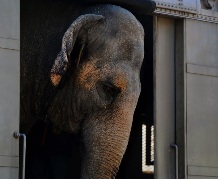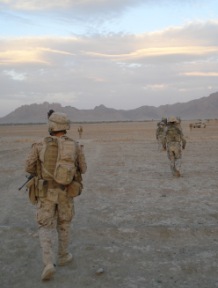ARTICLES
Below, read selected past articles by Kristin Henderson that first appeared in The Washington Post Magazine, Military.com, The New York Times, and elsewhere.
To follow Kristin’s new writing, join her on Facebook and Twitter.
FIX THIS DEMOCRACY — NOW: Mandate military or civilian service
First published in The Washington Post Magazine, October 29, 2017.
The Magazine asked 38 writers and artists how they’d fix America’s broken democracy. Kristin’s proposal:
I propose we all go back to kindergarten and relearn how to cooperate and share our toys. The adult version is to spend time in compulsory service to our country. Because if we’re free to do whatever we want to do, we won’t have a country. I’ve learned this lesson in the 19 years since my husband joined the Navy as a chaplain. During two deployments to Afghanistan and one to Iraq, plus years at sea, he has served alongside…
Read the entire article in The Washington Post Magazine.
THE BIG EXIT
First published in The Washington Post Magazine, October 30, 2016.
Elephants have performed for us for years. Now they’ve been retired from Ringling Bros. and Barnum & Bailey Circus. Will their lives be better?
The rail-car door was open just a crack. Just enough for a pink-speckled gray trunk to feel its way out, a creature all its own. Its single fingertip felt along the rail car’s lower edge, explored the crisp outside air. The mile-long Ringling Bros. and Barnum & Bailey Circus train was parked in the sunshine along the Anacostia River in Washington, D.C. At the doors of two of the train’s cars, handlers were setting up ramps. The trunk withdrew inside. Two months from now, the circus’s elephants would give their last performance and transition to a Ringling facility in Florida, out of the public eye. As I followed the five elephants aboard this train through their final weeks on the road, Ringling called the transition the bittersweet end of a 145-year-old family-friendly tradition. Animal rights activists hailed it as a win against an inherently abusive form of entertainment…
Read the entire article in The Washington Post Magazine.
VIETNAM: THE PEACE
First published in The Washington Post Magazine spring travel issue, March 27, 2011.
Vietnam wasn’t an obvious destination for her and her husband, who was just back from a MASH-type unit in Afghanistan. But it offered what they needed:
…Enjoying a vacation in what used to be enemy territory may be a small, banal act, but somehow it’s restoring my faith in a larger truth: that war wounds can be healed. My husband is one deck below, taking pictures of the passing, dreamy bay. In Afghanistan, one of his collateral duties was taking pictures in the operating room: amputations, brain surgeries, exposed beating hearts. He spent his time over there in the bloody O.R., in the morgue, at the bedside of dying Afghan soldiers. He hasn’t talked about it much in the weeks since coming home. He’s still in the numb phase…
Read the entire article in The Washington Post Magazine.
First published in The Washington Post Magazine, July 4, 2010.
As a civilian USAID worker in Afghanistan, you can expect tough negotiations with tribal leaders, anger from villagers and constant enemy fire. And that’s before you actually get there:
The two-story yellow-brick building had seen better days. Laura Mendelson followed the American soldiers guarding her and the rest of the team of U.S. government employees up the crumbling concrete steps. The dimly lighted lobby was loud with the strident voices of a crowd of women in headscarves and long tunics. They shouted for the team’s attention. They wanted something. “Don’t stop,” said the soldiers. “Keep moving…”
Read the entire article in The Washington Post Magazine.
First published in The Washington Post Magazine, June 21, 2009.
Marine 1stLt Arthur Karell and his platoon were sent to Now Zad, Afghanistan, to train Afghan police. Instead, they had to fight the insurgents who had taken over the town:
“Fix bayonets.”
Not long after giving that order, 1st Lt. Arthur Karell was hunched in a dirt trench crowded with Marines. The hushed darkness bristled with eight-inch blades fitted beneath the barrels of dozens of M-16 assault rifles. You fix bayonets when you expect to need the aggressive combat mind-set that’s produced by the primal sight of massed blades… The problem was, Karell didn’t know what to expect. He was from Arlington. He’d traveled the world. This place, though, was like nowhere he’d ever been…
Read the entire article and view the slide show in The Washington Post Magazine. You can also read a transcript of Kristin’s live online chat with readers of the article, hosted by washingtonpost.com.
ANTICIPATORY GRIEF
First published on Military.com, July 2007.
While my husband, a Navy chaplain, was in Iraq with the Marines, I imagined a knock at my door. I imagined uniformed Marines telling me that my husband was dead. I imagined the funeral. I cried in the shower, sometimes felt like I couldn’t get enough air, and one day in church had an almost uncontrollable urge to get up and run out. Not only did I not know all this craziness had a name — anticipatory grief — I didn’t know there were techniques to cope with it…
DEPLOYMENT SURVIVAL GUIDE
First published in Military Spouse Magazine, May/June 2006.
Stress or trauma isn’t just “in your head.” When you imagine your spouse getting injured or killed in a war zone, your body responds as if it’s really happening. Changes rush throughout your brain, body, and nervous system. Glands release hormones, your heart beats faster, less blood flows to your arms and legs. Your bowels may act up, you may get heartburn, acid indigestion, and find it hard to relax or sleep. A few simple techniques can help you start getting all that stress under control…











